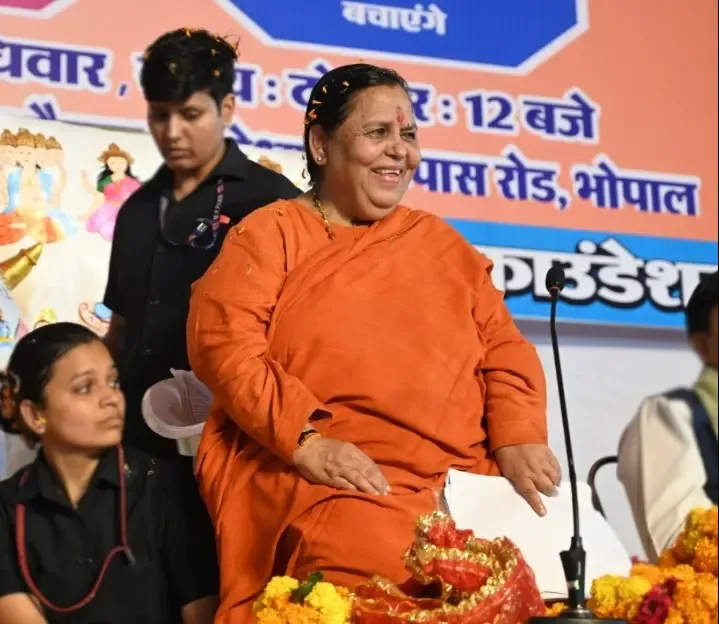Why is Former MP CM Uma Bharti Proposing a Cow for Each 'Ladli Behna' Scheme Beneficiary?

Synopsis
Key Takeaways
- Uma Bharti advocates for cow conservation linked to alcohol prohibition.
- A campaign promoting cow milk consumption is set to launch.
- Proposal to give a cow to each Ladli Behna scheme beneficiary.
- Expected income increase from Rs 3,000 to Rs 8,000-10,000.
- Importance of boosting livestock resources highlighted.
Bhopal, Oct 29 (NationPress) Esteemed leader of the Bharatiya Janata Party (BJP) and former Chief Minister of Madhya Pradesh, Uma Bharti, articulated on Wednesday that there should be a connection between cow conservation and alcohol prohibition to enhance the consumption of cow milk throughout the state.
Bharti emphasized her intention to initiate a campaign encouraging the populace to prefer cow milk over alcohol.
She claimed that this initiative would motivate individuals to raise cows, subsequently leading to an increase in milk production.
This announcement was made during the 'Gau Samvardhan' (Cow Conservation) event held in Bhopal.
The gathering was hosted by the Maa Beti Bai Foundation, an NGO dedicated to social causes.
"We will launch a campaign to promote cow conservation and discourage alcohol consumption. It is essential to increase the cow population in every household in the state," Bharti stated while addressing the media after the event.
Additionally, she suggested that the state government should distribute at least one cow to each beneficiary of the Ladli Behna scheme in Madhya Pradesh.
"Providing cows to the beneficiaries of the Ladli Behna scheme can significantly enhance their income from Rs 3,000 to Rs 8,000-10,000 per month, enabling them to achieve self-reliance," Bharti added.
She highlighted the necessity of increasing cattle resources, noting that India's current cow population is approximately one per every seven individuals.
In the same breath, Bharti commended Chief Minister Mohan Yadav for his dedication to advancing animal husbandry to elevate milk production and provide financial advantages to farmers.










